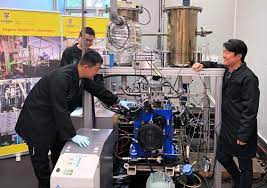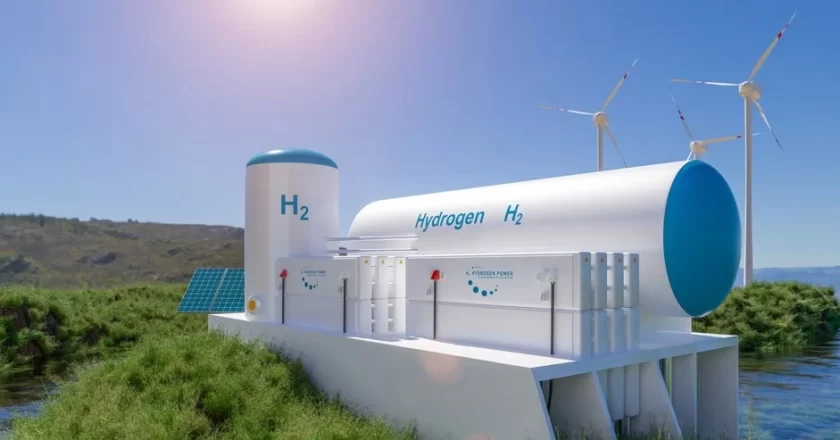As of this year, engineers at the University of South Wales in Australia have discovered a new technology that has the potential to revolutionize the construction and mining industries: a hybrid diesel and hydrogen engine. This technology was developed to cut carbon emissions from machinery, and has since proven successful with an 85% reduction in gas usage. Engineers hope to introduce hydrogen-fueled machines to the whole Australian continent, and later the world, in an effort to contain global warming.
The leader of the team Professor Shawn Kook began the development of the technology by mixing 90% hydrogen and 10% diesel. He then introduced the mixture to the engine cylinder for combustion. While the process may seem simple, the chemical engineering behind the engine is quite complex and difficult to manage. If the hydrogen is not introduced into the fuel mix at the right moment “it will create something that is explosive that will burn out the whole system,” Prof Kook explains.
The technology is also limited by the circumstances from which the hydrogen is prepared for use in hybrid engines. While some of the hydrogen is extracted directly from the ground, the majority of it is manufactured. This process requires energy, and therefore, emits carbon and other fossil fuels on its own.

Despite these drawbacks, the hybrid engine is expected to still have a meaningful impact on carbon emissions. Hydrogen does not produce carbon dioxide when burnt, making it a much greener alternative to fossil fuels. With the present issue of climate change caused by greenhouse gases, such revolutionary technology could serve an immense purpose.
Tim Buckley, the director at Climate Energy Finance, a public interest think-tank in Sydney, believes the technology has the potential to “transform the Australian mining industry dramatically.” As a multi-billion dollar field that serves as the world’s largest coal liquefied gas exporter, the implementation of a hybrid engine system would decrease Australia’s carbon footprint. It would also help reduce the environmental effects the country faces from global warming-related disasters, such as bushfires, heatwaves, and drought.
However, Australia is not the only country working to develop hydrogen engines. A global race to environmentally reform machine-based industries has taken hold of engineers in the United States, England, Japan, and many more. Nonetheless, the Australian team still believes that they have an edge due to the high amount of hydrogen in their fuel ratio, which is greater than any other country.

The hydrogen and diesel hybrid engine will remain at the New South Wales laboratory until finances from outside investment allow the technology to reach everyday manufacturers and mining companies. For now, Kook and his team remain optimistic about the potential of their hydrogen engine: “Our vision is to impact Australian mining, agriculture, and construction industries first and then move out to the rest of the world to make a bigger impact.”

